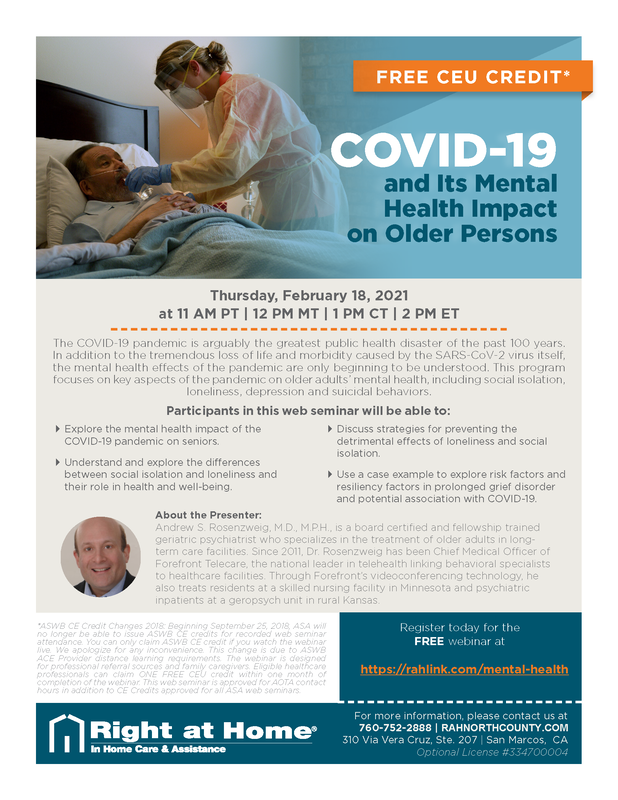|
The COVID-19 pandemic is arguably the greatest public health disaster of the past hundred years. In addition to the tremendous loss of life and morbidity caused by the SARS-CoV-2 virus itself, the mental health effects of the pandemic are only beginning to be understood. This program focuses on key aspects of the pandemic on older adults' mental health, including social isolation, loneliness, depression, and suicidal behaviors. It also introduces the audience to the concept of prolonged grief and how societal aspects of the response to the pandemic have made prolonged grief likelier for older adults after the loss of a loved one. Healing milestones and factors that derail healing will be presented, along with strategies for preventing the detrimental effects of social isolation and loneliness. Participants in this web seminar will be able to:
Comments are closed.
|
news Categories
All
RECENT NEWS
July 2024
|
|
|
|
|


 RSS Feed
RSS Feed
